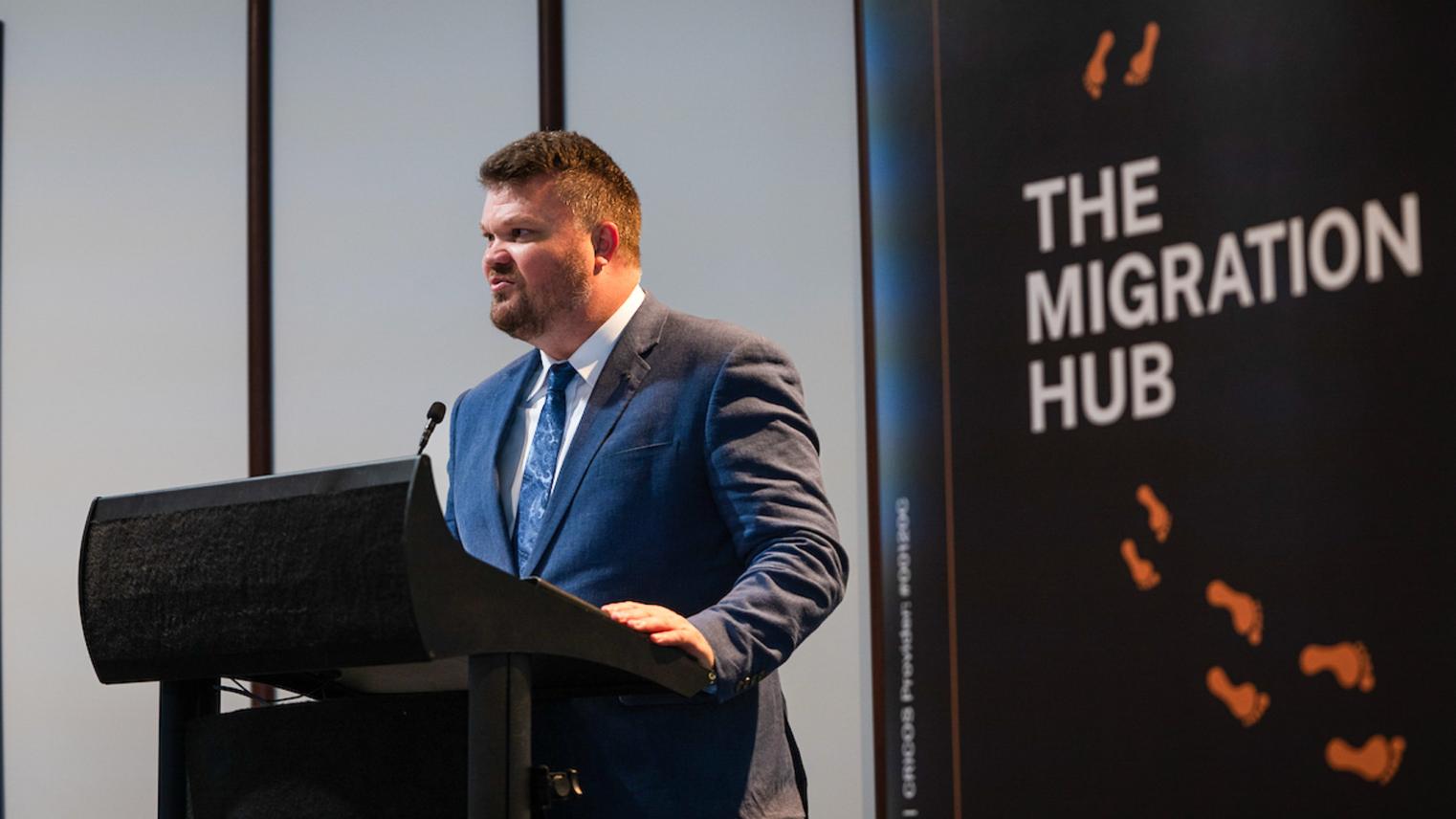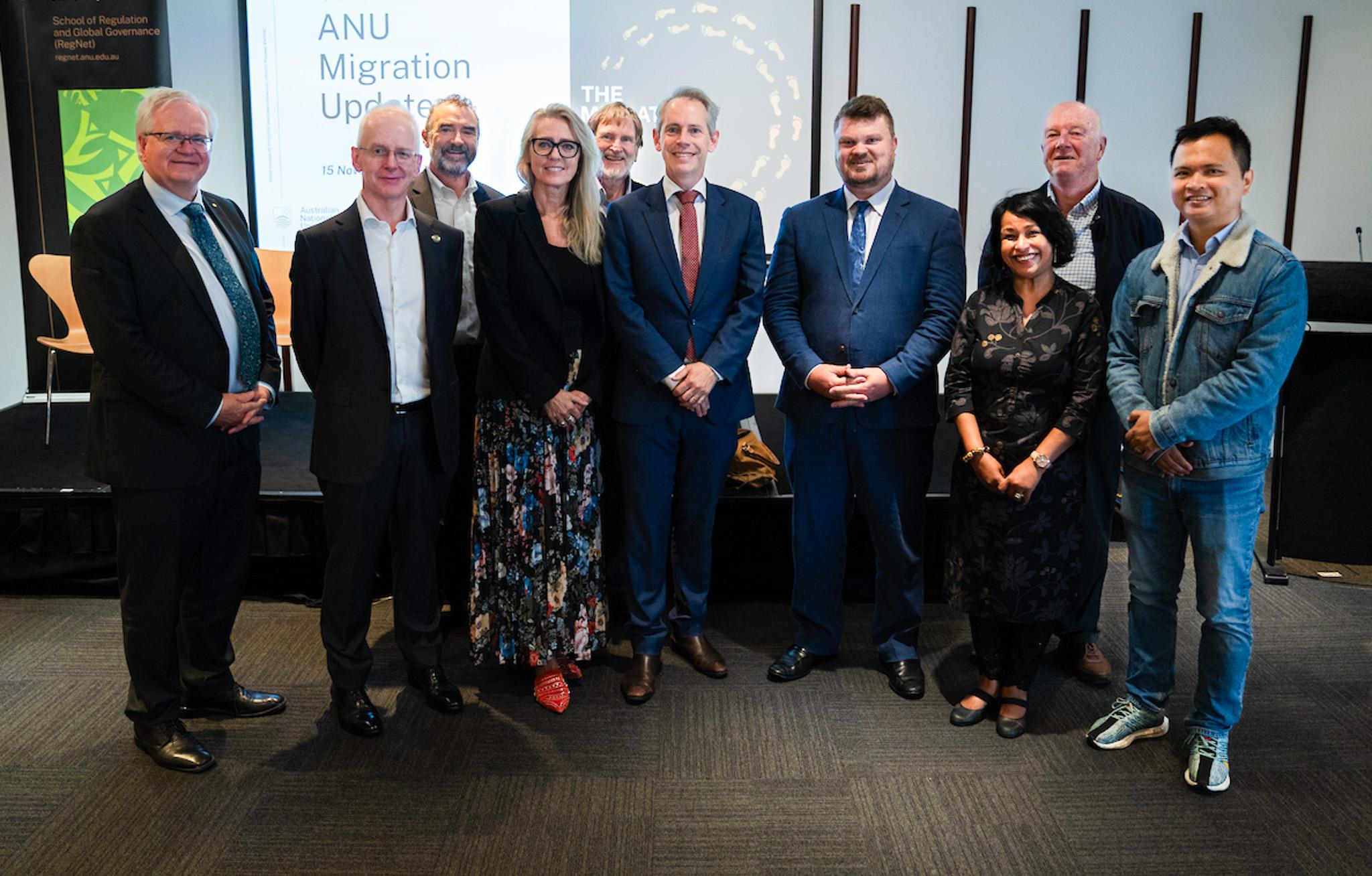First of its kind research hub brings migration to the forefront of Australian policy and academic landscape

Australia currently lacks large-scale research into migration harming our ability to create effective policies and keep our society accurately informed. This could have disastrous impacts on our economy and democracy. Housed at the ANU College of Asia and the Pacific (CAP), the ANU Migration Hub wants to tackle Australia's migration research gap.
Created to advance knowledge of human population movements, the ANU Migration Hub connects researchers and policymakers with an interest in human migration. The Hub aspires to translate its research into better migration policy outcomes in Australia and beyond.
According to Professor Alan Gamlen, Director of the Hub, Australia is falling behind, with investment into migration research at an all-time low. Further support from government agencies, NGOs, employers and other donors could bolster migration research to meet growing demands.
“Australia aspires to compete with countries like Canada in the migration field, but we have nothing resembling their recent $111 million investment in understanding migrant integration,” Professor Gamlen said.
"There are large-scale migration research initiatives at top universities in the US, UK, Europe and elsewhere – but nothing in Australia or the Asia-Pacific, even though migration is a bigger part of society and the economy in our region,” he added.
How will researching migration benefit Australia?
Immigration contributed almost half a trillion dollars to the Australian economy in 2015 - a quarter of Australia's GDP. For this reason, many economists refer to better migration policy as the “trillion-dollar bill on the sidewalk”. Professor Gamlen is confident effective migration policies will create sizeable economic benefits and a worthwhile return on investment for Australia.
“A 1% improvement through research would deliver 5 billion dollars [into the Australian economy]. Small changes to migration policy make a big difference,” he said.
The Hub brings together our expert ANU College of Asia and the Pacific (CAP) scholars and industry and government partners to share ideas and collaborate. Now with over 100 experts, the Hub has experienced rapid growth since its establishment in 2022. Many members are PhD-qualified researchers who specialise in research on various aspects of migration.
“This is the first time we have had such a critical mass of experts. That is quite significant,” Professor Gamlen stated.
Having a collection of experts in one place uniquely positions the Migration Hub to tackle unprecedented amounts of migration data that is not being analysed due to a lack of available research expertise.
Why do we need migration research?
The need for migration research comes at a critical time globally with half of the world’s population, notably the United States, heading to the polls in 2024. This will mark the biggest year for democracy in history.
A key election issue facing many countries around the world is migration. This worries Professor Gamlen who knows the subject can be weaponised to divide people.
“Migration is one of the most divisive issues of the 21st century, but we don’t invest enough in understanding how it works.
“Some of the biggest societal challenges of our times are bound up with migration – such as rapid ageing, sustainable population growth, urban congestion, housing affordability, and maintaining social cohesion. We can’t address these challenges without a deep understanding of migration,” he said.
Debates around migration are already surfacing in Australia as politicians prepare for the coming election. The cost-of-living crisis, housing affordability and international student numbers are fuelling assumptions without evidence-based information. Professor Gamlen says this highlights a timely need for dedicated research into migration in Australia.
“To make the right choices we need a properly informed public debate – rather than what we have now, which is a debate led by emotions, opinions, and unfortunately… a lot of deliberate misinformation.
For these reasons, Professor Gamlen believes the work of the Migration Hub is timelier than ever. He is adamant that the Australian government needs access to the best information and research to support well-informed public debate and most importantly, a healthy democracy.
What opportunities does the Migration Hub provide to staff and students?
Housed in the ANU College of Asia and the Pacific's School of Regulation and Global Governance, the Migration Hub is the only dedicated migration research body in the Asia-Pacific region and the first of its kind in Australia. The Hub has an active role in the community and regularly delivers briefings, workshops, conferences, trainings and submissions around its research.
One of the benefits of housing expert researchers at the university is the unique learning experience it provides to our students. Professor Gamlen is proud of the link between the expertise at CAP, student learning and institutions such as the Migration Hub.
“Our members offer world-leading courses and research supervision on human migration and related topics at undergraduate, honours, master’s and PhD levels, in addition to internships and executive education,” he said.
The Migration Hub convenes leading experts across academia, policy, NGOs, and industry, to share knowledge, collect evidence, question assumptions and find solutions to major challenges concerning the movement of people.
Join the Migration Hub!
The ANU Migration Hub seeks to support higher standards of evidence, public understanding, and debate about migration issues, to improve the quality of related decisions and outcomes. To do this we need to partner with foundations, philanthropists, and stakeholders to achieve our long-term goals. Please contact migrationhub@anu.edu.au if you’d like to donate to our work or if you can introduce us to interested funders.
